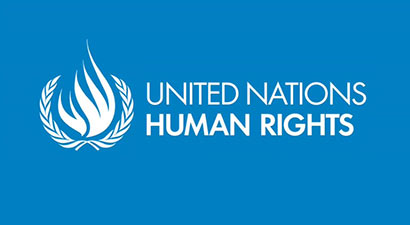
If Clinton really wants to cement her status as a future champion of Black America, there’s yet another issue she needs to address that has had an enormous impact on the lives of Black people: income and wealth inequality.
When it comes to the difference between the wealth of white households and Black households in the United States, the numbers are devastating.
A comprehensive 2013 study by the Institute on Assets and Social Policy at Brandeis University found that the median wealth of white families in 2009 was $113,149, compared to $6,325 for Latino families and $5,677 for Black families. Researchers at Brandies traced the wealth of 1,700 families from 1984 to 2009 and found that over that 25-year period, the total wealth gap between white and African-American families nearly tripled, increasing from $85,000 in 1984 to $236,500 in 2009.
The total impact of this gap can’t be overemphasized. A family’s wealth affects every aspect of that family’s life: dictating the quality of the neighborhood the family can live in, which affects the quality of the schools the children attend, which affects the likelihood the children will attain a college degree, which affects the family income and wealth all over again in an unending cycle. It also gives the family a financial cushion in case of emergency or job loss, which affects the stress in the household, which impacts the likeliness of a couple being able to weather the storms and stay together.
White families already earn about $2 for every $1 that a Black and Hispanic family earns, according to a study by the Urban Institute. The Great Recession made the gap infinitely worse, with Hispanic families losing 44 percent of their wealth between 2007 and 2010 and Black families losing 31 percent.
In comparison, white families lost 11 percent of their wealth.
These numbers say everything about the racial tensions that currently exist in America. When a community explodes like Ferguson after the horrifying killing of an unarmed Black teenager by the police, it is years of palpable frustration exploding to the surface — a frustration fed by the statistics cited above.
Clinton is certainly aware of these unconscionable numbers. Her family business is the Clinton Foundation, which she runs jointly with her husband and daughter, and the foundation states prominently on its website that its purpose is to “create partnerships of great purpose to improve global health and wellness, increase opportunity for women and girls, reduce childhood obesity, create economic opportunity and growth, and help communities address the effects of climate change.”
Surely she’s stumbled across the vastness of the wealth gap that exists in her country and she knows how devastating it is for Black and Hispanic people.
So as she gears up for a presidential run that will lean heavily on the support of African Americans (and Latinos), she should be preparing a multi-faceted plan that will directly address closing this gap. One of the primary ways this can be done is tackling the biggest perpetuator of the gap — home ownership.
When the Brandeis researchers set about to break down the various factors that contribute to the yawning race gap, this is what they found: Years of home ownership accounted for 27 percent of the gap, the largest portion; average family income accounted for 20 percent; even with similar college degrees, whites make more money, which accounted for another 5 percent of the gap; how much wealth a family started with in 1984 (largely due to family inheritance) accounted for 3 percent of the gap; unemployment contributed 9 percent of the gap.
Clearly, any major effort to close the gap must confront the huge difference in the rates of home ownership — while 74 percent of white households own their homes, the number is about 45 percent for Blacks.
“Homeownership is an even greater part of wealth composition for black families, amounting to 53 percent of wealth for blacks and 39 percent for whites,” the Brandeis researchers wrote in their report. “Yet, for many years, redlining, discriminatory mortgage-lending practices, lack of access to credit and lower incomes have blocked the homeownership path for Africans-Americans while creating and reinforcing communities segregated by race. African-Americans, therefore, are more recent homeowners and more likely to have high-risk mortgages, hence they are more vulnerable to foreclosure and volatile housing prices.”
What can Clinton tell us she plans to do about all of this? She can tell us she’s going to institute much stronger mortgage and lending policies and more strictly enforce fair housing policies so residential segregation and redlining no longer give white homeowners greater wealth opportunities than they do to Black homeowners.
As for the persistent problem of income equality, she can start by pushing to raise the minimum wage, something President Barack Obama has been pushing for years. In addition, she can push to enforce equal pay provisions and strengthen employer-based retirement plans.
The point is that most of the wealth gap is due not to any failures on the part of African-Americans but to policies that reinforce systemic racism and keep the deck substantially stacked against African-Americans and other people of color. As president, Hillary Clinton needs to let us know that she will work hard to fix the deck.

